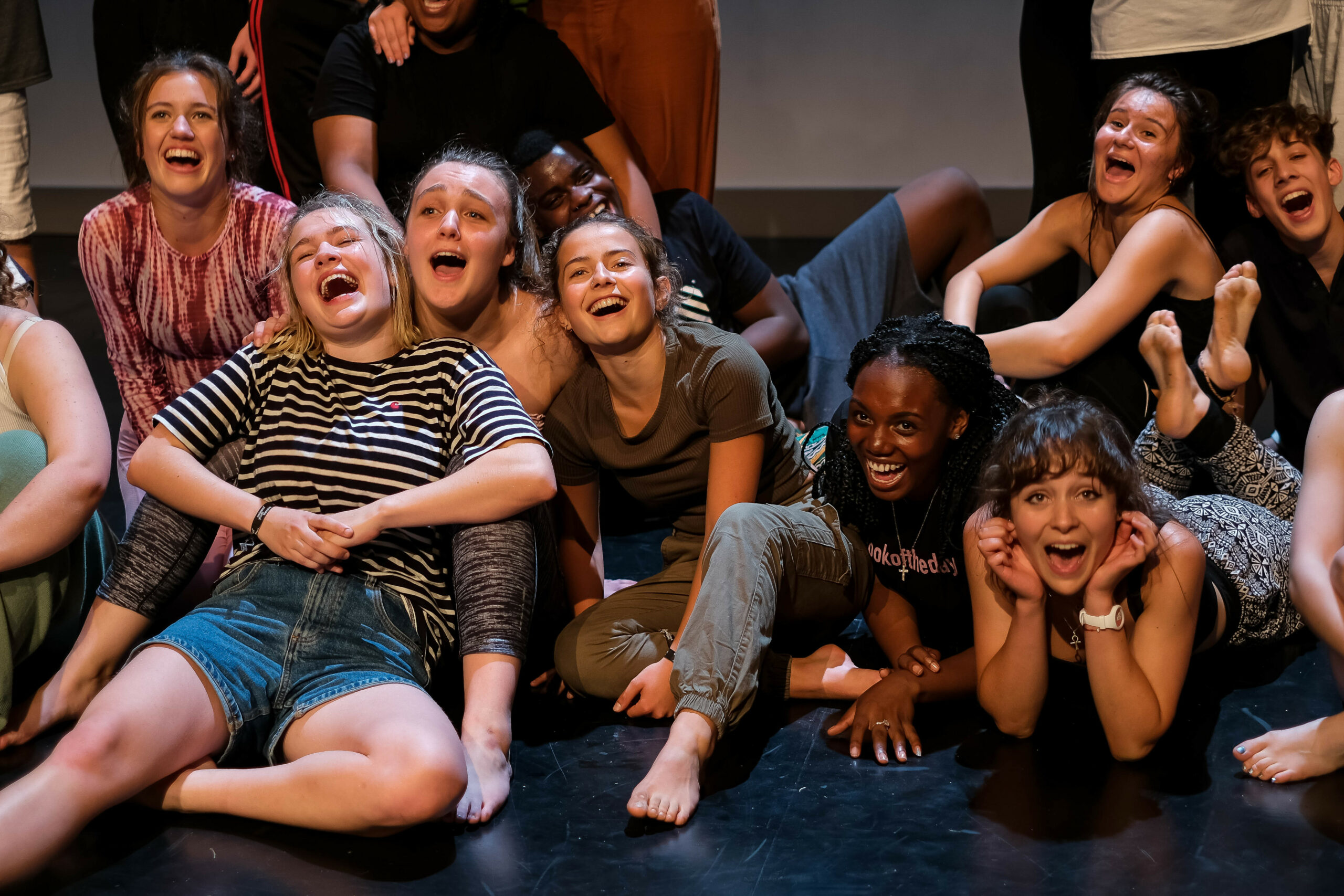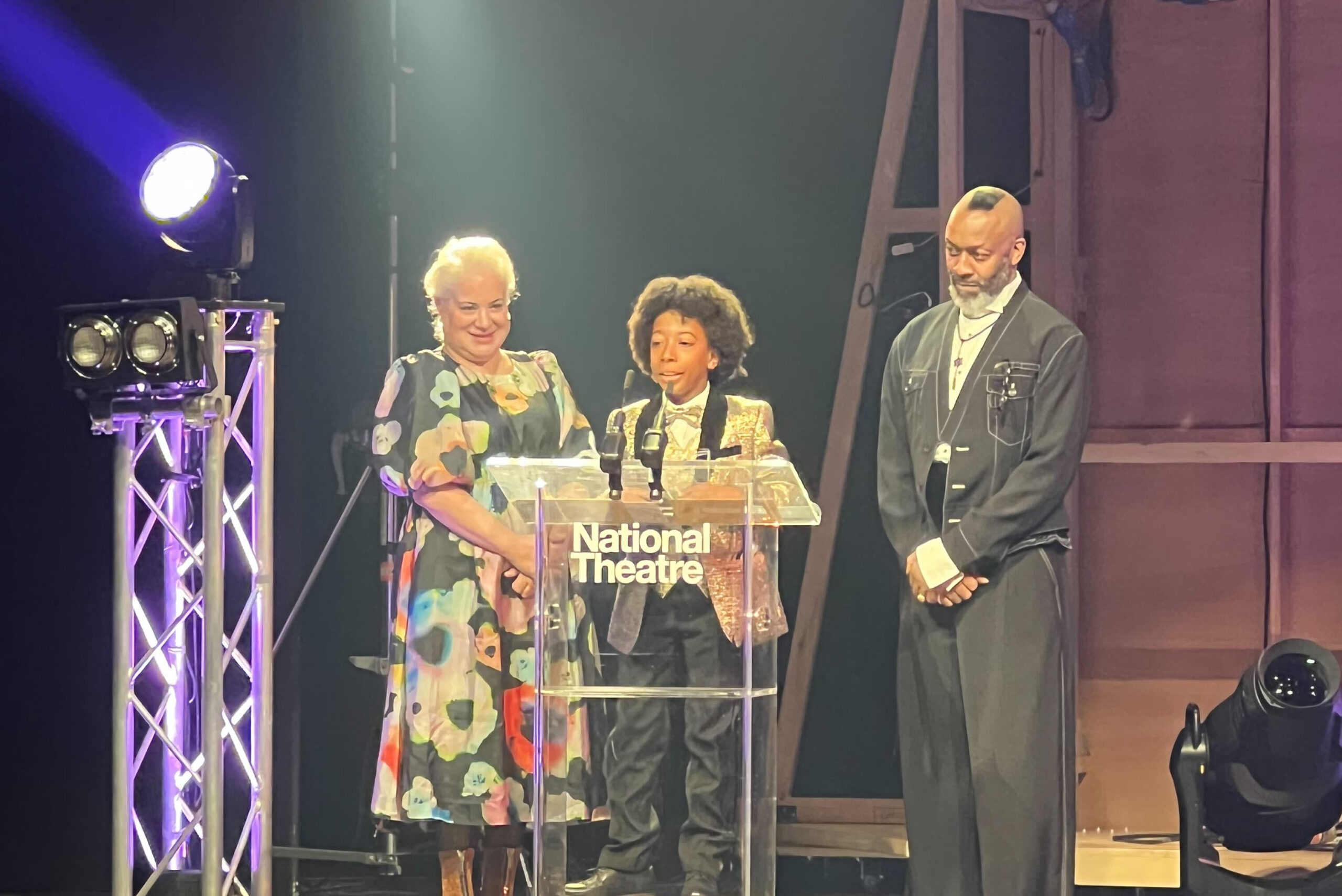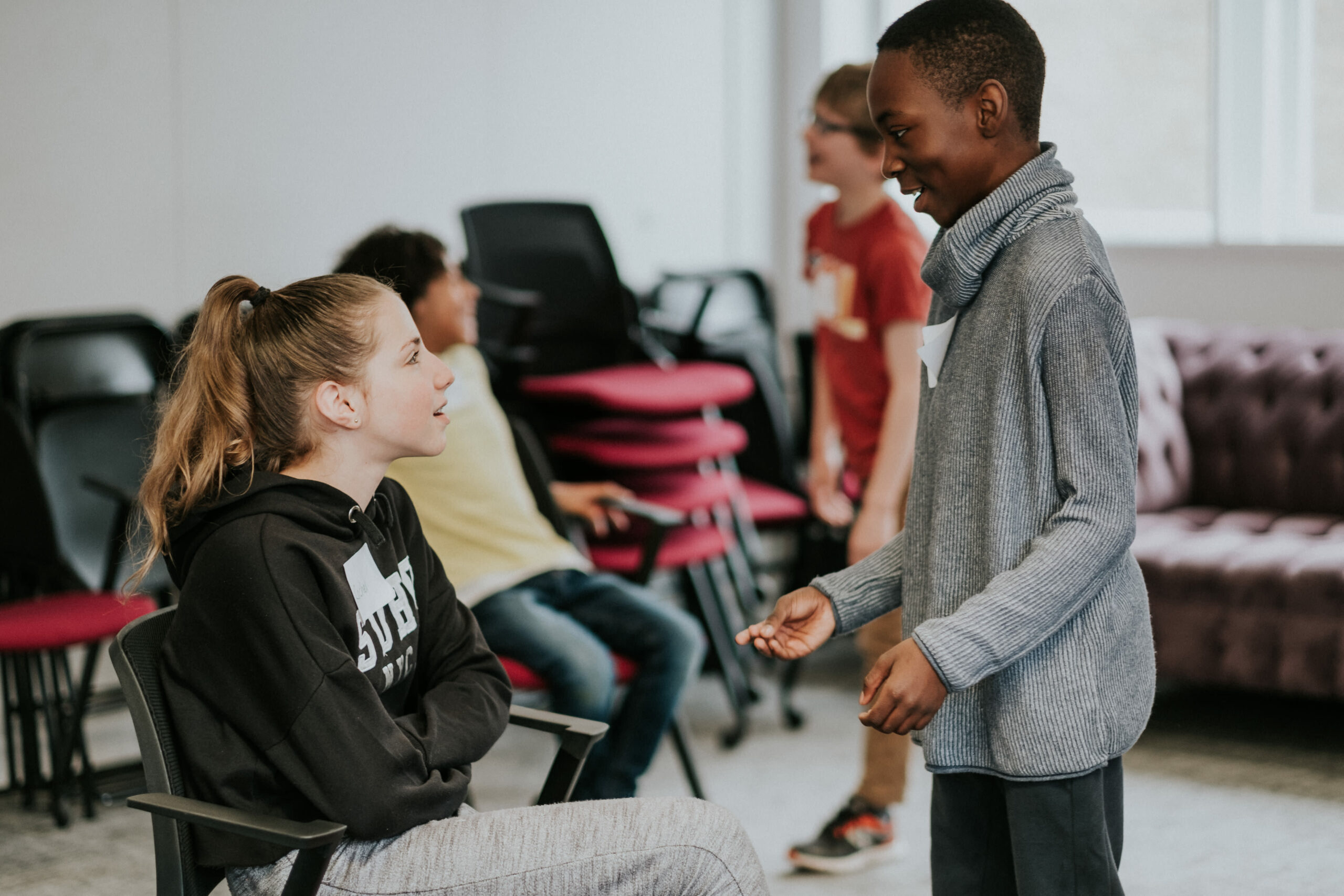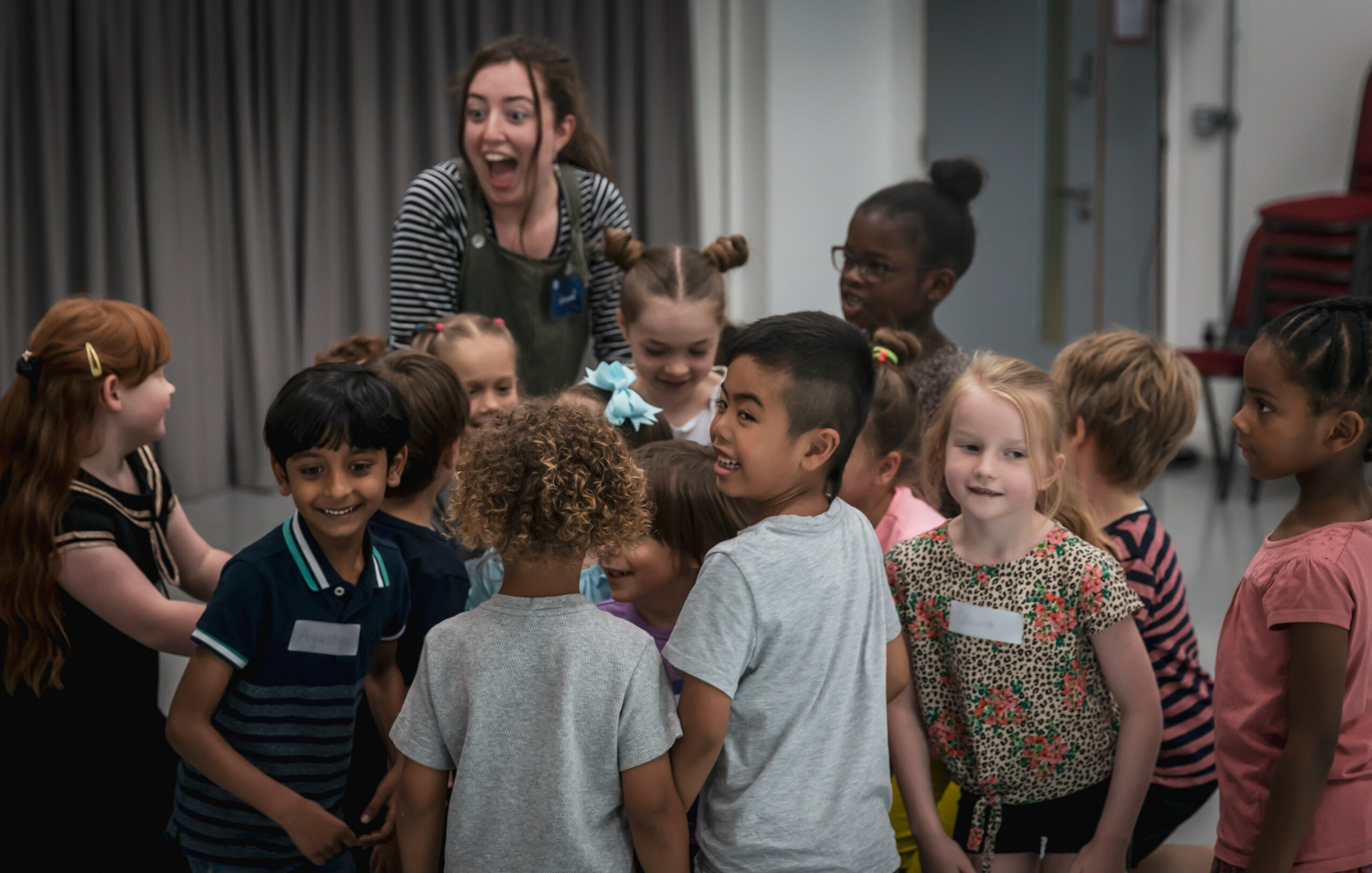Why youth theatre is important for young actors and how you can get involved
Youth theatre is a lifeline for many young people. It’s a safe place where in-person connections thrive, creativity is celebrated, and individuals are accepted. For some, youth theatre can even become a home and a family.
Here are seven reasons why your child may want to join a youth theatre if they want to become a performer, including what a youth theatre does and how you can find one that’s close to you:
1. Youth Theatre Inspires Young Actors
Youth theatre can ignite a love of theatre in young people and help prepare them for pursuing a career in the performing arts industry. Actors who started out in youth theatre include Helen Mirren, James McAvoy, Daniel Craig, Matt Smith, Chiwetel Ejiofor, Rosamund Pike, and Zawe Ashton.
James McArdle, a PACE Youth Theatre patron and alumnus, is now a successful actor with credits that include The Tragedy of Macbeth, Life After Life, Star Wars: Episode VII – The Force Awakens and Mare of Easttown. He says, “I owe everything to ‘PACE’. Not just the skills I learnt that I can use when acting, but how to have confidence in myself. It helped me find joy in meeting new people and not be afraid of being me. It taught me I had value and worth, which has been a vital part in becoming an actor, but also just in growing up.”
Youth theatre isn’t only inspiring the next generation of actors, but backstage artists too. Benedict Rattray, a former member of the Backstage group at Trinity Youth Theatre in Tunbridge Wells, is now working professionally in the West End. He says, “Taking part in the Trinity Backstage Youth Theatre gave me excellent hands-on experience in a wide variety of technical areas, which I was able to take forward with me while studying stage management at drama school. The experience of working in a professional venue from a young age also substantially prepared me for working in the industry when starting my career. I would thoroughly recommend it!”
2. Youth Theatre Brings People Together
With the rise of social media, there’s a lot of socialising through screens. However, drama games at youth theatre break the ice and can bring people back together.
Jenni Mason, the Artistic Director of PACE Youth Theatre, says, “For this generation of young people, life is even more complicated as they navigate their way around the pressures of social media and spend less time interacting and more time than ever in front of a screen. Promoting the importance and the benefits of being creative and having access to arts experiences is more important than ever before.”
In addition to this, youth theatre can help to heal what may have been lost due to Covid-19 restrictions. Many young people were isolated during formative years in their development and may now struggle to be around other people. Youth theatre brings them into a shared, in-person space filled with drama games and improvisations that are the perfect antidote to isolation.
3. Youth Theatre is Good for Mental Health
Many youth theatre members and alumni talk about the benefits youth theatre gave them during difficult times.
A student from the National Youth Theatre’s free Stepping Up course explains, “I’ve got low self-esteem, anxiety, and depression, but when I come to NYT, I feel like my anxieties are lifted and I’ve learnt social skills that help me be less reserved.”
Youth theatre can also be a rock in some people’s changing lives. Holly Mankelow (18), a member of Trinity Youth Theatre, says, “I found youth theatre during a huge transitional period in my life when everything was changing. To have a constant in my life where I could relax, be myself and explore the thing I really loved doing was so precious to me.”
4. Youth Theatre has Positive Long-Term Impacts
In 2022, Youth Theatre Arts Scotland (YTAS) and the Scottish Graduate School for Arts and Humanities carried out research into the long-term impacts of youth theatre participation.
Kenny McGlashan, the CEO of YTAS says, “We can see the power of youth theatre very clearly in the results of this research project. We were able to identify six key long-term impacts of participation in youth theatre.”
These are:
- Confidence
- Emotional intelligence
- Resilience
- Teamwork and leadership skills
- Emotional wellbeing
- Broadened horizons
“We also found that the combination of skills development, nurturing facilitation, and the supportive environment of youth theatre creates a system of continual positive reinforcement,” Kenny says, “meaning that these impacts become embedded as personal values throughout participants’ lives.”
Take a look at the full report and case studies for more information.
5. Youth Theatre Helps Build Teamwork
Youth theatre takes us back to our beginnings of being human, which is ultimately, a group of people working together in person to achieve a common goal. After teaching at youth theatres for many years, I believe this ‘togetherness’ is one of the key ingredients that makes them so powerful.
Newbury Youth Theatre alumni Ben Prout says, “The sense of achievement and comradeship gained from devising with a group of likeminded young people will always be immensely special to me. My time in youth theatre gave me a strong skillset of teamwork, adaptability, ingenuity, and research.”
6. Youth Theatre Celebrates Individuals
Youth theatres are known for accepting all students from diverse backgrounds and with a rainbow of identities. Many youth theatre leaders work tirelessly to make the group accessible for all.
Dyddgu Jones, a member of the National Youth Theatre of Wales, says, “[It’s] a form of exploring what makes us unique and celebrating this. Our own experiences and imperfections are valuable, and the power of youth theatre encourages us to appreciate and reflect this above all else in our work.”
7. Youth Theatre is for Everyone
Neither location nor finances should be a barrier when it comes to youth theatre. Most towns and cities across the UK offer a youth theatre, where fees for the most part are kept low, with many offering free places. Youth theatre isn’t just for those who want a career in the arts – it’s for everyone.
Jason Lower, director at Trinity and Oast Youth Theatres, and trustee of the National Association of Youth Theatres, says, “Youth theatre has the power to transform young people’s lives, giving them the confidence to do what they didn’t think possible, both on and off stage.”
The skills gained at youth theatre last a lifetime. Youth theatre can give hope to the hopeless, community to the lonely, and it’s also just a great place to have fun.
How to Find Youth Theatre Near You
There are many youth theatres across the UK. To find one near you, ask your local theatre or school teacher, or search online and use the search feature on the National Association of Youth Theatre’s website.
Here are a few of the youth theatres available to get you started:
– The National Youth Music Theatre
– Next Generation Youth Theatre (Luton)
– Half Moon Theatre (London E1)
– Mansfield Palace Youth Theatre
– National Youth Theatre of Wales
– Saturday Youth Theatre (London)
From all of us at Spotlight, we want to say a huge thank you to Samantha for her amazing insights into the power of youth theatre!
Take a look at the News & Advice section on our website for more helpful articles for young performers and parents.
 Sam is the author of ‘100 Acting Exercises for 8–18 Year Olds‘, published by Bloomsbury. She worked as a freelance drama teacher for 11 years and ran a Youth Theatre, which grew into one of the largest regional Youth Theatres in the UK. She’s now a full-time writer, writing drama teaching resources, for The Stage newspaper, and fiction for young adults.
Sam is the author of ‘100 Acting Exercises for 8–18 Year Olds‘, published by Bloomsbury. She worked as a freelance drama teacher for 11 years and ran a Youth Theatre, which grew into one of the largest regional Youth Theatres in the UK. She’s now a full-time writer, writing drama teaching resources, for The Stage newspaper, and fiction for young adults.
Headshot credit: Rosalind Hobley
Main image credit: Ollie Bryant












